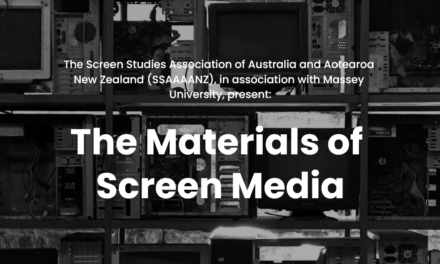We are seeking proposals for chapters to complete an edited collection on morality and ethics on/through television. The essays will address TV dramas and comedies aired during the Golden Age of TV, continuing through peak and prestige TV. An editor at Lexington Books, a division of Rowman & Littlefield, has expressed interest in this project.
The Golden Age of television begins with the Sopranos (1999) and becomes Peak TV or Prestige TV circa 2006. Brought about by the confluence of changing cultural dynamics, bigger and better TVs that enhanced the viewing experience, and new outlets looking for content to distribute, the Golden Age of TV inaugurates a turn towards complex characters, relationship dynamics, and situations that had not played out in living rooms before. In his book Difficult Men, Brett Martin says that the defining characteristic of the Golden Age of TV was its depiction of conflicted and flawed male leads. Despite the morally questionable behavior of Tony Soprano, Omar Little, Walter White, Don Draper, and Dexter Morgan, viewers at least rooted for them even if they could not totally identify with them. This volume seeks contributions that reconsider comedies and dramas from this era in light of the changing social attitudes brought about by cultural upheavals that challenged opportunities for marginalized groups, such as women and people of color in media and on TV. Additionally, these comedies and dramas can be reconsidered in light of more positive and inclusive depictions of men, women, and family in the eras of peak and prestige TV.
The eras of peak and prestige TV begin in 2011. The term peak refers both to the proliferation of TV shows airing across new streaming channels (with more scripted TV being produced during this era than ever before) and also the belief that the quality of these shows is better than anything ever produced for TV. This era of TV emphasizes connection over self-actualization, community over individuality, and an uplifting vision of humanity, rejecting the nihilism of the previous era. While not every show is in this era is The Good Place, shows like The Year of Living Biblically, God Friended Me, Sunnyside, and even Russian Doll are brighter in their diagnosis of, and solution to, the human condition. Dan Levy, creator of Schitt’s Creek calls this era of TV “joyful programming; programming that makes you feel safe, loved and inspired” (Dowling, “Emmys: How ‘The Good Place,’ ‘Veep,’ ‘Russian Doll’ Find Humor in Heightened Realities,” 2019). This volume seeks contributions that tease out the moral messages of shows from this era that seek to explain their moral vision and objectives as well as connect them to the cultural milieu that they arose from.
Contributions to the volume will treat TV comedies and dramas as moral artifacts. Authors will investigate the moral vision of these shows individually or comparatively by thinking through the moral meanings and messages they attempt to convey to audiences. Examples can be negative (in the sense of ‘the audience ought not to’) or positive (‘the audience ought to’), and it is certainly possible to read against the implied morality of the show. Overall, the essays in the volume will move the reader through the moral dimensions of these connected, but tonally different, eras of TV by exploring whether (and if so, how) TV is a site of moral learning and conversation.
Chapter proposals are welcome on, but not limited to:
- Theoretical approaches about meaning, morality, and ethics on or via television
- Pieces that situate the historical and moral meanings of peak and/or prestige TV in a general sense
- Normative ethical theories (Kantian ethics, Utilitarianism, Natural Law ethics, Virtue Ethics, ethics of care, and/or existentialist ethics, etc.) played out or applied to a TV show from either era
- Explorations of positive and negative moral lessons from TV shows produced in this area, e.g. “this show instructs us to … this show instructs us not to …”
- Critical rereadings of the moral vision or behavior of characters from the Golden Age of TV or earlier offerings of the peak/prestige TV era (e.g. re-watching The Wire, The Sopranos, Mad Men,Breaking Bad, The Office (US or British), or How I Met Your Mother)
- The moral lessons to be drawn from anti-heroes (positive and negative lessons)
- The ethics of authenticity and sincerity as the possible difference between the Golden Age and Peak TV
- Women as moral agents and moral issues dealing with women on TV
- Depictions of marginalized groups — or inclusion/exclusion of marginalized groups in this era — specifically, how that connects to moral and social issues in those communities in this era.
- Inclusion and exclusion of individuals along the LGBTQ spectrum, with an emphasis on instructing the viewing audience on how to engage and interact with members of those communities
- The moral vision of The Good Place, Schur-verse, or another show (or shows) connected to the moral vision of its creator
- Moral lessons and ethics through laughter and TV comedies, either using laughter and comedy to impart/explore moral lessons or the moral dimensions of what is laughed at.
- The depiction of religion (American civil religion, denominational religion, etc.) in this era and the link to moral values and behavior, including inclusivist, exclusivist, and pluralistic attitudes towards religion and the religion of others
- How a specific moral issue played out on one or more shows
- Animated ethics: what is the place of animated shows (in general or particular shows) in conversations about morals and ethics in/through Golden Age/peak TV?
Guidelines:
- Final drafts 6,000-7,000 words
- Jargon kept to a minimum and should be readable in an upper level undergraduate course on pop culture or media and ethics
- Contributors must have earned an advanced degree in their field.
Please send inquiries and 500-word proposals, along with a CV, to Steven Benko and Vance Ricks at better.living.through.tv@gmail.com by January 10. Contributors will be notified by January 31 and completed chapters of 6,000 to 7,000 words will be due June 14, 2020.





